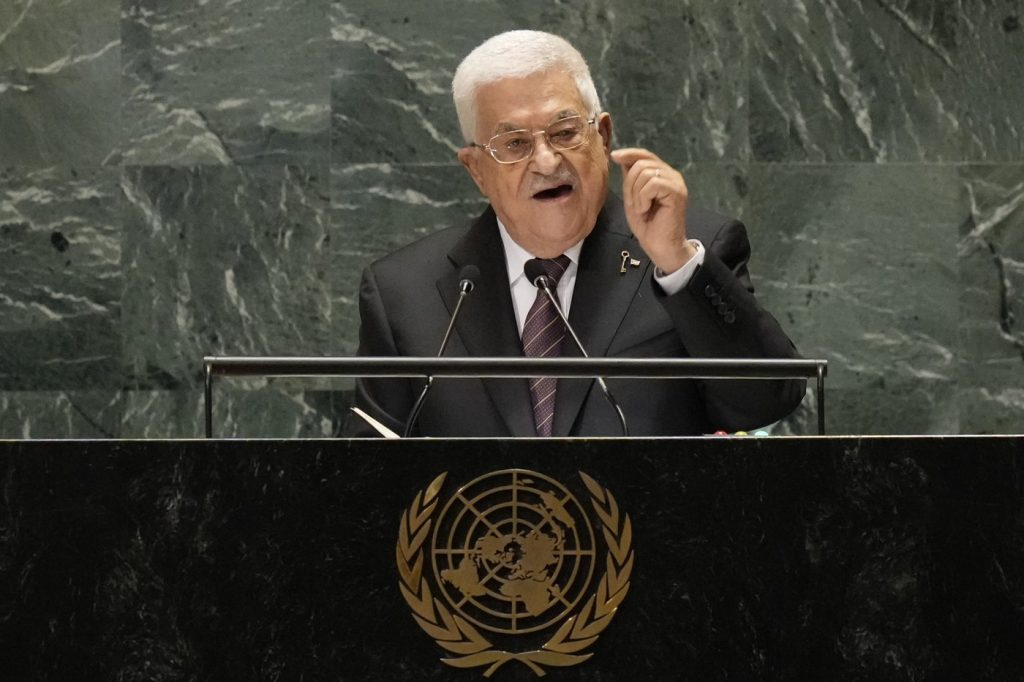RAMALLAH, West Bank (AP) The Palestinian president's office has called on the U.S. government to reverse its unexpected decision to revoke the visa of Palestinian President Mahmoud Abbas. This revocation comes just weeks before Abbas was scheduled to address the United Nations' main annual meeting and participate in an international conference focused on creating a Palestinian state.
In response to the visa revocation, the 27-nation European Union has also urged the Trump administration to reconsider this controversial move, which has been met with widespread criticism from various global leaders and organizations.
U.S. Secretary of State Marco Rubio announced the cancellation of visas for President Abbas along with 80 other officials ahead of the upcoming high-level U.N. General Assembly meeting next month. The State Department cited national security interests as the reason behind this decision. Historically, Abbas has consistently addressed the General Assembly, often leading the Palestinian delegation at this important event.
Palestinian presidential spokesperson Nabil Abu Rudeineh voiced concerns regarding the visa revocation, stating, "We call upon the American administration to reverse its decision. This decision will only increase tension and escalation." He emphasized that diplomatic efforts are underway, having established contact with various Arab and foreign countries that are directly concerned about the issue, with a commitment to keep these efforts ongoing.
Abu Rudeineh specifically urged nations that are organizing a high-level conference on September 22, aimed at revitalizing efforts for a two-state solution in Israel and the Palestinian territories, to pressure the Trump administration to reconsider its decision. Notably, this conference is co-hosted by France and Saudi Arabia.
French Foreign Minister Jean-Noël Barrot expressed his dismay over the U.S. decision, stating, "The U.N. headquarters is a sanctuary in the service of peace. It should not be subject to any access restrictions." He made these remarks after meeting with his counterparts from across the European Union.
Kaja Kallas, the EU’s foreign policy chief, issued a statement emphasizing the need for reconsideration of the visa revocation in light of existing agreements between the U.N. and its host state, underscoring the importance of maintaining open access to the U.N. for all member states.
In addition to the focus on the visa issue, Abu Rudeineh also called for a cessation of Israel's military offensive in Gaza and the escalating violence in the West Bank, asserting that these actions are counterproductive to any potential solutions to the ongoing conflict.
The timing of the visa revocation coincides with Israel's declaration of Gaza's largest city as a combat zone, as the Israeli military identifies Gaza City as a stronghold of Hamas. This development raises further questions and concerns about the worsening humanitarian situation in the region.
The Trump administration has previously enacted various measures targeting Palestinians through visa restrictions. A State Department statement reiterated, "It is in our national security interests to hold the PLO (Palestine Liberation Organization) and PA (Palestinian Authority) accountable for not complying with their commitments, and for undermining the prospects for peace."
The Palestinian Authority has denounced the withdrawal of the visas as a violation of U.S. commitments as the host country of the United Nations. In light of this, U.N. spokesman Stephane Dujarric indicated that the world body would be seeking clarification from the State Department regarding the rationale behind this controversial decision.
Overall, the situation highlights the ongoing tensions surrounding U.S. foreign policy in the region, particularly towards Palestinian leadership and the broader implications for peace efforts in the Israeli-Palestinian conflict.












